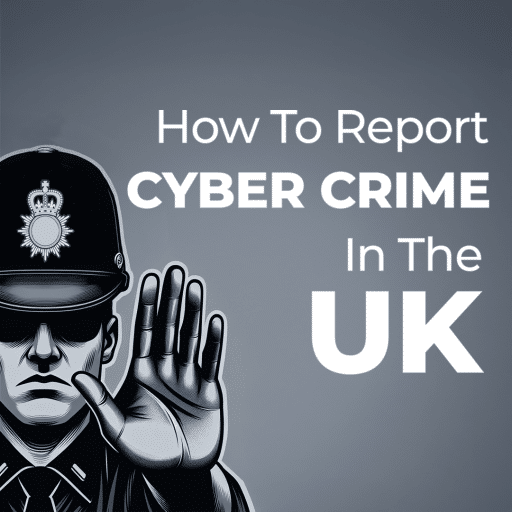Romance scammers prey on emotions and kindness, luring unsuspecting victims online and taking advantage of them for money or personal information. These predators come in different shapes and forms, from fake profiles on popular dating websites to catfish who strike up conversations with individuals on social media. If you have fallen victim to a romance scam, here are some steps to report them and protect yourself and others.
Recognizing the Signs of a Romance Scammer
Before diving into the reporting process, it’s important to recognize the key signs of a romance scam. Common red flags include:
- Urgency or Pressure: Scammers often pressure victims to act quickly, whether it’s sending money, sharing personal information, or taking immediate action. They create a false sense of urgency to manipulate emotions and prompt quick responses.
- Asking for Money: One of the most significant signs is when someone you don’t know personally asks for money. They may fabricate stories about urgent financial needs, such as a family member requiring medical attention or getting stuck in a foreign country without access to cash. Never send money to someone you’ve just met online.
- Reluctance to Meet in Person: Scammers often make excuses to avoid meeting in person. They may promise to visit but repeatedly find reasons to delay or cancel. If this is happening, it’s a strong indicator of a scam.
- False Persona: Many romance scammers use stolen photos of attractive individuals, including models or celebrities, and create fake profiles. They may present themselves as wealthy or successful but make errors in spelling or grammar. If their messages feel too polished or if you notice repeated mistakes, it could be a scam. It is also a good practice to run the photo of any new online relationship through a quick reverse image search to see if their photos are fake.
- Pushing for Personal Information: Romance scammers may request sensitive personal details, such as your address, date of birth, or even your social security number. Be cautious if this information is requested early in the relationship or for no apparent reason.
If you need additional help spotting a fake profile, we have a collected some of the most common scammer phrases you can watch out for in our article “Common Romance Scammer Phrases to Watch Out For.“
How Do I Report a Romance Scammer?
If you’ve fallen victim to a romance scam, it’s crucial to take immediate action. Here are the steps to follow when reporting the scam:
If you suspect you’ve been used as a money mule, report it to the FTC and your financial institution. This helps authorities track illicit money movement and prevent other individuals from falling victim.
Report the Scam to the Dating Platform or Social Media Site
Most dating apps and social media platforms have built-in tools to report scammers. Whether you met the scammer on a dating site or through social media, immediately report their profile or account to the platform.
While this may not help you on your road to recovery, filing this report can help prevent the scammer from victimizing others.
Contact Local Law Enforcement
While local law enforcement may not always be able to recover your funds, it’s important to report the scam so that a record is created. Provide them with all evidence, including communication history, screenshots, and any financial transactions that took place.
In some cases, law enforcement may be able to assist with investigating the scam or connect you with agencies that can help.
Report the Scam to the FBI’s Internet Crime Complaint Center (IC3)
The IC3 is a division of the FBI dedicated to investigating internet crimes, including romance scams. Submitting a complaint here contributes to their broader efforts to track and investigate online fraud.
Visit www.ic3.gov to file a complaint. Provide as much detail as possible, including the scammer’s profile, the interactions you had, and any funds you may have lost.
File a Complaint with the Federal Trade Commission (FTC)
The FTC handles consumer protection issues and tracks scams reported by victims. Filing a report with the FTC can help the agency investigate the scam, identify patterns, and potentially prevent future fraud.
To file a report, visit the FTC’s Consumer Complaint Assistant at www.reportfraud.ftc.gov. Select “Romance Scam” from the dropdown list, and provide details about the scammer and the scam itself.
While the FTC does not directly recover lost funds, your report helps them track scams and develop consumer alerts and educational content to prevent future fraud.
Contact Your Financial Institution:
If you’ve sent money to the scammer via wire transfer or other electronic funds transfer, contact your bank or credit card provider immediately. Depending on how you paid, they may be able to reverse the transaction or place a hold on the funds.
Be sure to report the scam as soon as possible to increase your chance of recovering lost funds.
How Cybersecurity Firms Can Help Your Recovery Efforts
In addition to reporting the scam to law enforcement and consumer protection agencies, working with a cybersecurity firm can enhance your chances of recovering your funds and locating the scammer.
Cybersecurity professionals are skilled in identifying fraudulent activities and may be able to assist in tracking down the scammer by analyzing digital footprints and identifying patterns in the scammer’s online behavior. These firms may utilize advanced tools and technologies, such as IP tracking and digital forensics, to locate and gather evidence against the scammer.
If you’ve lost significant money or personal information, hiring a cybersecurity firm could be a valuable step. They can also assist in identifying any potential security threats or vulnerabilities in your accounts that the scammer may have exploited.
Understanding the Consequences
Romance scams are serious crimes that take both an emotional and financial toll. In 2022, the FTC reported almost 70,000 romance scam cases, with victims losing up to $1.3 billion(1). These scams are growing rapidly and affect people of all ages, especially older adults and those seeking companionship online.
If you’re a victim of a romance scam, it’s important to seek help immediately. Reporting the scam not only helps you protect yourself, but it also helps authorities stop scammers and prevent further crimes.
Protect Yourself And Seek Help.
At Digital Forensics Corp., our team specializes in tracking down cybercriminals involved in romance scams, online blackmail, and sextortion. Using advanced forensic techniques and cutting-edge tools, we work tirelessly to identify and stop scammers. Here’s how we can assist you:
- Digital Footprint Analysis: We examine the scammer’s online activity, including social media profiles, email addresses, and digital communications, to uncover their true identity and location.
- IP Address Tracing: Our team uses sophisticated methods to trace the scammer’s IP address, which can lead to their geographical location and further evidence.
- Data Recovery: We work to track records for financial transactions and sensitive information using industry-leading recovery tools.
- Scam Pattern Recognition: By analyzing patterns across different cases, we can identify connections between scammers and expose larger networks.
- Platform Investigations: We collaborate with online platforms, such as dating sites or social media networks, to investigate fraudulent accounts and report them.
- Evidence Preservation: We ensure all digital evidence is properly preserved and protected for law enforcement investigation.
If you’ve fallen victim to a romance scam, don’t wait, take action today. DFC is here to help. Contact our helpline now for expert assistance in recovering from cyber extortion. You don’t have to face this challenge alone.
Sources:
- Federal Trade Commission (FTC). (2022). Romance scams: Consumer Reports. www.ftc.gov
DISCLAIMER: THIS POST IS FOR INFORMATIONAL PURPOSES ONLY AND IS NOT TO BE CONSIDERED LEGAL ADVICE ON ANY SUBJECT MATTER. DIGITAL FORENSICS CORP. IS NOT A LAWFIRM AND DOES NOT PROVIDE LEGAL ADVICE OR SERVICES. By viewing posts, the reader understands there is no attorney-client relationship, the post should not be used as a substitute for legal advice from a licensed professional attorney, and readers are urged to consult their own legal counsel on any specific legal questions concerning a specific situation.
The information presented in this article is based on sources that are not readily available to the public and may be subject to restrictions or confidentiality. It is intended for informational purposes only.







